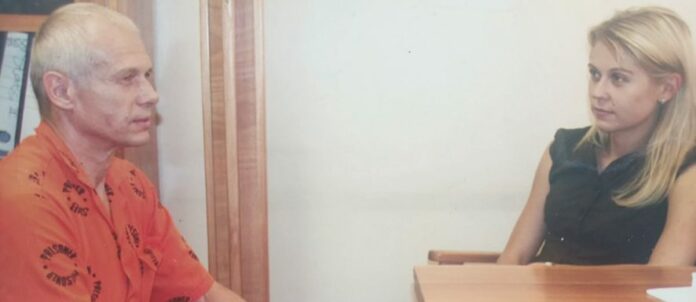Janusz Waluś – who was prisoner No 93616101 – “loves karate” and even had black prison inmates training under his tutelage.
This is how 69-year-old Waluś, a gym enthusiast and karate aficionado, is described by a prison official who has known him for almost 20 years.
Waluś, was stabbed on November 29, just days before he was due for release on parole, allegedly by another inmate serving a life term for murder.
When he was taken to hospital following the stabbing, it was the first time in the 28 years of his incarceration that he was admitted for medical care. Except for trips to a private dentist to clean his teeth and for general oral hygiene, the prison warder reveals that “Waluś kept himself in tip-top condition through gym, kickboxing and karate.
“He would be granted permission to visit his private dentist either in Gezina [northern Pretoria] or Queenswood [an eastern suburb of the capital].
“It was probably his agile built and fast reflexes that stood him in good stead when he was attacked,” she says, adding that she last saw him before the stabbing incident.
Waluś, she says, is the last parolee of four infamous apartheid-era assassins who were incarcerated at Kgosi Mampuru II Correctional Centre in Pretoria when she started working at the prison. “He was reclusive and talked only to a few people,” says the warder. “I’m one of those people he would speak to, he would even wave ‘Hi Sister’, yet there are people whose presence he did not even acknowledge – and this applied to fellow inmates and prison staff.”
Speaking of the time when Waluś served with three other apartheid killers at Kgosi Mampuru II, previously known as Pretoria Central Prison, the middle-aged official said she worked in Section G when Waluś, Clive Derby-Lewis, Eugene de Kock and Ferdi Barnard, were inmates.
“Section G, which is divided into three parts 4, 5 and 6, comprises single cells where high-profile prisoners are imprisoned,” she says.
Waluś, a Polish national, was sentenced to death for the assassination of South African Communist Party leader Chris Hani on April 10, 1993.
His co-accused Derby-Lewis was also sentenced to death for his prominent role in the assassination. Their sentences were later converted to life imprisonment when South Africa abolished the death penalty. Derby-Lewis was granted medical parole in 2015 and died the following year of lung cancer.
De Kock, leader of an apartheid death squad based at Vlakplaas west of Pretoria, was sentenced to two life sentences and an additional 212 years for 89 charges including six of murder. He was granted parole in 2015 after serving 20 years in jail.
Barnard was handed down a life term in 1998 for the assassination of anti-apartheid activist and Wits academic David Webster and the attempted murder of the late former justice minister Dullah Omar. He too was released on parole in 2019.
Except for Derby-Lewis, they were all quiet, private and kept to themselves. “Derby-Lewis was brash and laughed a lot.
“Waluś grew even more reclusive after the other three left,” she says, adding that “he did not speak much but he would speak to me. It intrigued me and other officials why he was so comfortable speaking to me.
She says during the many brief conversations she had with Waluś over the years, she learnt that he has a farm in Thabazimbi, Limpopo. “He said he was looking forward to spending time at the farm on his release.”
She says the four apartheid killers were not only polarising in society, but within the prison walls too. “The interactions between the four and some white guards were interesting. They would get a discreet and subtle salute from some white guards.”
Even more curious, she says, was when one or the other inmates were not in his cell for the roll calls. “When you enquire, you would be told that the minister had requested to see him. This used to happen often especially when Ngconde Balfour was minister of correctional services,” she says.
For the latest entertainment news from Sunday World, click here.
Or read the latest from Shwashwi here.
Follow @SundayWorldZA on Twitter and @sundayworldza on Instagram, or like our Facebook Page, Sunday World, by clicking here for the latest breaking news in South Africa. To Subscribe to Sunday World, click here




Thank you for your sharing. I am worried that I lack creative ideas. It is your article that makes me full of hope. Thank you. But, I have a question, can you help me? https://accounts.binance.com/es-MX/register?ref=GJY4VW8W